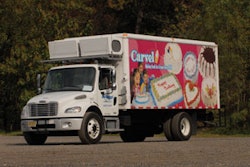Washington: Recent reports have found that fruit juices, such as apple and grape, contain arsenic and lead at levels that far exceed the federal bottled and public water standards.
The problem is that there are no federal standards for how much lead and arsenic is too much. Reps. Frank Pallone, D-NJ, and Rosa DeLauro, D-CT, want to change that.
The "Arsenic Prevention and Protection from Lead Exposure in Juice Act of 2012" or "APPLE Juice Act of 2012" is in response to a Consumer Reports investigation that found levels of arsenic and lead that exceeded the federal standards for drinking water in 10 percent of apple and grape juice samples tested in New Jersey, New York and Connecticut.
"I don't think I can emphasize enough the dangers of the arsenic in these juice boxes that are sitting on our shelves in our homes," said Pallone, the senior Democrat on the House Energy and Commerce Committee's subcommittee on health.
Arsenic and lead, which get into the juice through contaminated groundwater and soil, can accumulate in the system and can cause bladder, lung and skin cancer, and increase risks of cardiovascular disease, immunodeficiency's and type 2 diabetes.
Kids, who are smaller and drink more apple juice than adults, have a higher risk.
Neither Pallone nor DeLauro could cite a specific case of a child getting ill from apple juice. Ami Gadhia, a lawyer with Consumer Reports, said that's because arsenic and lead cause problems when they build up in the system over time.
Siobhan DeLancey, a spokeswoman for the FDA, said the agency is continuing to examine and gather data to determine whether there is a need to set guidance to assure the safety of apple juice.
She added that the FDA has monitored fruit juices for arsenic for more than 20 years and has "found that total arsenic levels in apple juice are routinely low." She said the FDA also has been monitoring the presence of lead in juices and doesn't yet have any evidence that it's an on-going public health issue.
DeLauro, the senior Democrat on the House Appropriations subcommittee on labor, health, human services and education, said that's not good enough.
"I am tired of guidance of the issue of the health and safety of our families and kids," said the grandmother of four. "I want firm standards."
A recent Consumer Reports investigation found "alarmingly high" levels of arsenic and lead in apple and grape juices purchased in New Jersey, New York and Connecticut.
The limit for arsenic in bottled and public water is 10 parts per billion (ppb). Their study found arsenic levels in apple juices ranged from 1.1 to 13.9 ppb and grape juice levels ranged from 5.9 to 24.7 ppb. One fourth of all juice samples had levels at or above the 5 ppb limit for lead in bottled water. The highest levels detected were 13.6 ppb in apple juice and 15.9 ppb in grape juice.
That report followed another done by Mehmet Oz, M.D., host of "The Dr. Oz Show," who also found high levels of arsenic in apple juice.
"For whatever reason -- I think it's because kids don't vote -- a lot of times, agencies don't do the right thing for kids," Pallone said.
Under the bill, the FDA would have two years to set a limit for the amount of arsenic and lead allowed in all fruit juices.
So far, the bill has yet to gain other co-sponsors, bipartisan support or Senate backers, but Pallone said he expects that to change.
"It's pretty straight forward. When you talk to people about this, they seem shocked," he said.


















